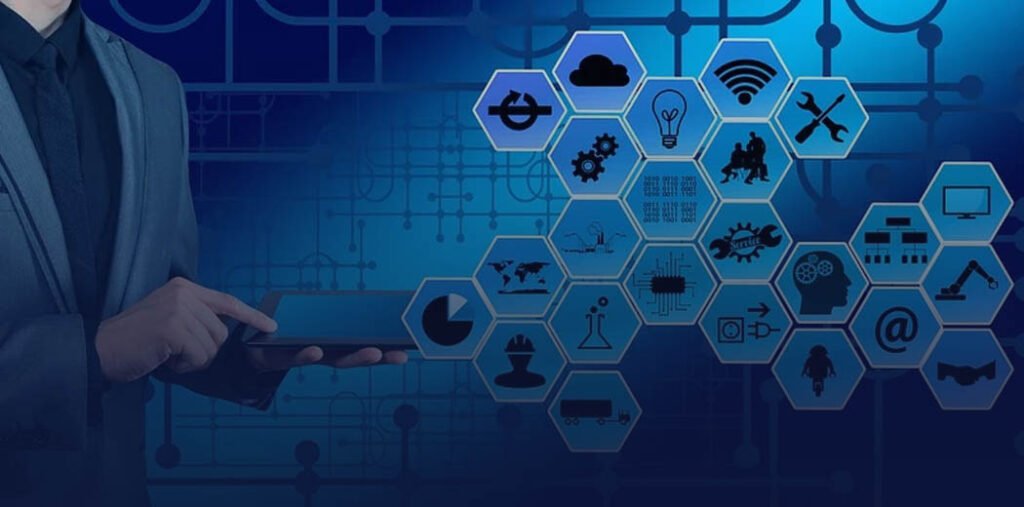Introduction:
Embark on a journey into the future of computing, where technological advancements are poised to revolutionize our digital world. Join us as we unravel the impact of emerging technologies and envision the transformative possibilities that lie ahead.
Navigating the Digital Landscape: A Comprehensive Guide to Computer Basics
Before we gaze into the future, let’s establish a solid foundation by revisiting computer basics. Understanding the essentials will enable us to grasp the potential impact of emerging technologies on our digital experiences.
Artificial Intelligence: A Cognitive Revolution
Dive into the cognitive revolution brought about by artificial intelligence (AI). Explore how machine learning, natural language processing, and neural networks are shaping the future, enhancing automation, and elevating decision-making processes.
Quantum Computing: Unleashing Unprecedented Power
Peer into the realm of quantum computing, where the principles of superposition and entanglement are harnessed for unparalleled computational power. Discover how quantum computers have the potential to solve complex problems at speeds unimaginable with classical computers.
Internet of Things (IoT): A Connected Ecosystem
Witness the expansion of the Internet of Things (IoT), creating a seamlessly connected ecosystem. Explore how smart devices, interconnected through the internet, are transforming industries, homes, and the way we interact with the world.
Edge Computing: Revolutionizing Data Processing
Explore the revolution in data processing with edge computing. Learn how computing resources are brought closer to the data source, reducing latency and enabling real-time analytics in a variety of applications, from autonomous vehicles to smart cities.
5G Technology: Accelerating Connectivity
Delve into the accelerated connectivity provided by 5G technology. Understand how this fifth-generation network is enhancing data transfer speeds, reducing latency, and unlocking new possibilities for communication and innovation.
Augmented and Virtual Reality: Redefining Experiences
Step into the future of immersive experiences with augmented and virtual reality. From gaming to training simulations and beyond, explore how these technologies are redefining the way we perceive and interact with digital content.
Blockchain Revolution: Trust and Transparency
Uncover the revolutionary impact of blockchain technology on trust and transparency. From secure transactions to decentralized systems, explore how blockchain is reshaping digital interactions across various industries.
Biotechnology Integration: Merging Biology and Computing
Witness the intersection of biology and computing through biotechnology integration. Explore how advancements in genomics, bioinformatics, and computational biology are pushing the boundaries of what’s possible in healthcare and beyond.
Sustainability in Tech: Eco-Friendly Innovations
As we step into the future, sustainability takes center stage. Explore eco-friendly innovations in technology, from green computing practices to renewable energy solutions, ensuring a responsible and sustainable digital future.
FAQs about the Future of Computing
How does AI impact job roles in the future?
AI is expected to automate routine tasks, allowing humans to focus on more complex and creative aspects of their jobs. It may create new job roles and industries.
Can quantum computers solve any problem?
While not suitable for all problems, quantum computers excel in solving complex problems, particularly those involving vast amounts of data or intricate simulations.
How does 5G differ from previous network generations?
5G offers significantly faster speeds, lower latency, and increased capacity compared to previous network generations, enabling more advanced and efficient connectivity.
What industries benefit most from IoT?
Industries such as healthcare, manufacturing, agriculture, and transportation benefit significantly from IoT by improving efficiency, reducing costs, and enhancing decision-making processes.
How secure is blockchain technology?
Blockchain is considered highly secure due to its decentralized and encrypted nature. However, like any technology, it’s crucial to implement best practices to ensure security.
How can technology contribute to environmental sustainability?
Technology can contribute to sustainability through energy-efficient practices, renewable energy solutions, and innovations in waste reduction and recycling.
Conclusion:
The future of computing is a captivating landscape of innovation and transformative possibilities. Emerging technologies are not just reshaping our digital world; they are redefining the very fabric of how we live, work, and interact. As we navigate this exciting journey, let’s embrace the potential and ensure a future where technology harmonizes with sustainability and enhances the human experience.
